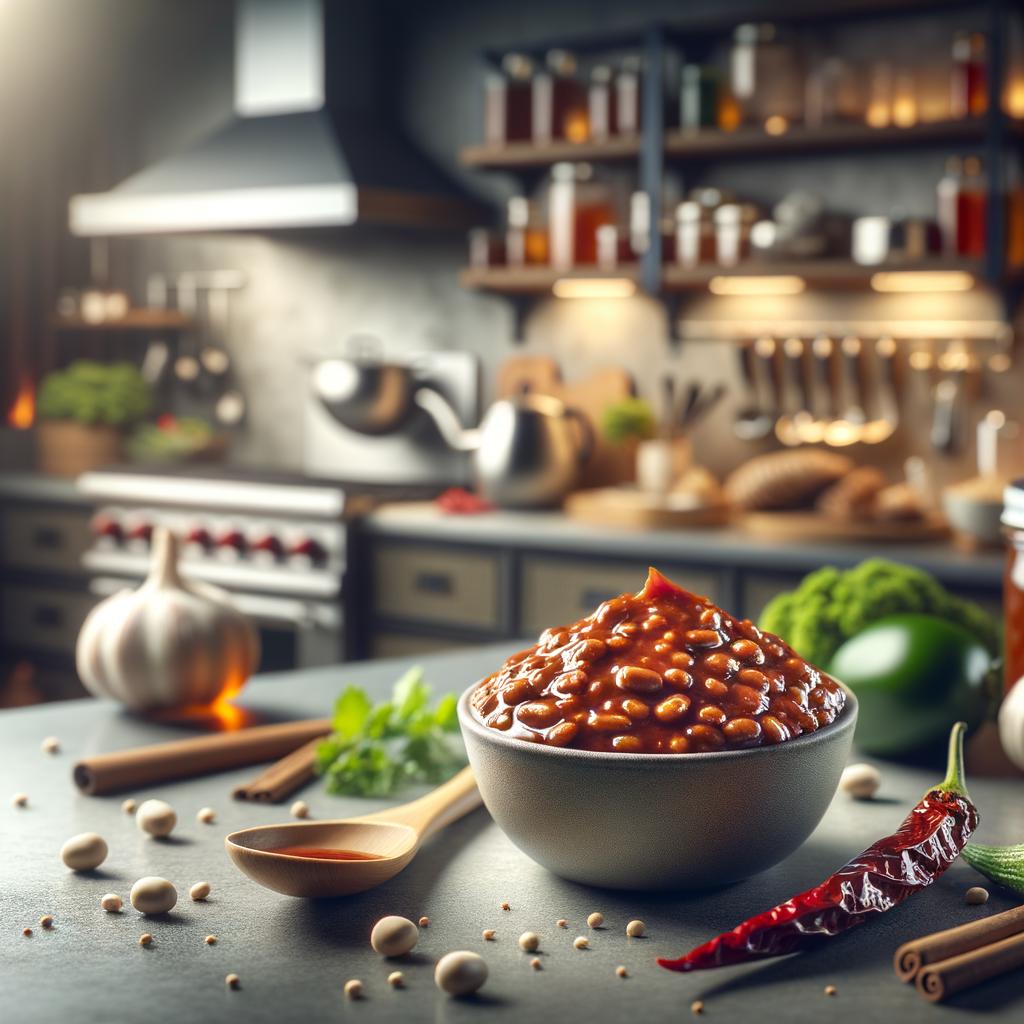Doubanjiang

Description Doubanjiang, often referred to as the "soul of Sichuan cuisine," is a fiery red paste with a rich, complex flavor profile. Made from fermented broad beans, fresh chili peppers, salt, and wheat flour, its appearance is a deep, inviting red with a thick, chunky texture that's both enticing and intriguing. The taste is a complex blend of spicy, salty, and umami flavors, with a subtle hint of sweetness that lingers on the palate. What sets doubanjiang apart from other chili pastes is its unique fermentation process, which imparts a depth of flavor that is both intense and harmonious, making it a beloved ingredient in the realm of Chinese cuisine.
Primary Uses Doubanjiang is the backbone of many Sichuan dishes, imparting a robust, spicy flavor that is both tantalizing and addictive. It's used in classics like Mapo Tofu and Sichuan Hot Pot, where its fiery heat and deep umami notes are key to these dishes' distinctive taste. In addition to its culinary uses, doubanjiang also has cultural significance in China, particularly in Sichuan province, where it's often gifted during the Lunar New Year as a symbol of good luck and prosperity.
History The history of doubanjiang is steeped in the rich culinary traditions of Sichuan province, dating back over 300 years. It's believed that the technique of fermenting broad beans was introduced by the Qin Dynasty, which was then combined with the spicy chili peppers brought over from South America during the 16th century. This blend of old and new world ingredients gave birth to doubanjiang, a testament to the ever-evolving nature of food culture. Over time, its popularity spread across China and beyond, becoming a staple in Asian supermarkets worldwide. There's a romantic tale that a poor farmer created the first batch of doubanjiang using leftover broad beans and chili peppers, and it was so delicious that it brought prosperity to his family, symbolizing the transformative power of food.
Nutritional Information Doubanjiang is not only flavorful but also packed with nutritional benefits. It's a good source of protein and fiber due to the fermented broad beans, and the chili peppers provide a hefty dose of Vitamin C and capsaicin, which is known for its anti-inflammatory properties. While its sodium content can be high due to the fermentation process, it's typically used in moderation, adding a punch of flavor without overdoing the salt. Compared to other chili pastes, doubanjiang offers a unique blend of nutrients, thanks to its combination of beans and peppers, making it a flavorful and healthful addition to any dish.

